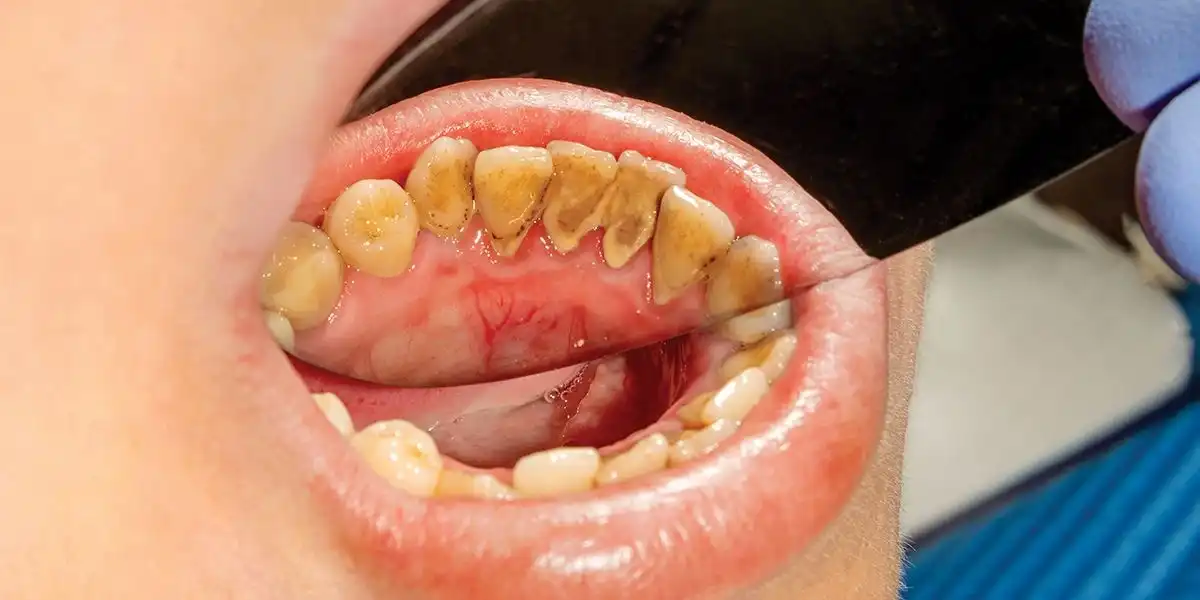How To Remove PLAQUE vs.TARTAR


More than likely, you’ve seen the toothpaste commercials talking about anti-tartar products or mouthwash blends designed to help you get rid of dental plaque on your teeth.
But have you ever stopped to wonder what the difference between plaque and tartar actually is? They’re not the same thing — and you may not know it — but one is worse than the other.
What Is Plaque?
Getting plaque on teeth is normal. In fact, you can’t stop it. It’s a natural biofilm (that’s the big scientific word we use for a bacterial colony) that forms when your saliva starts breaking down food particles.
Inside of plaque are different types of bacteria as well as acid byproducts.
The reason your dentist and hygienist say to brush so often is to remove plaque on teeth and gums, preventing you from having to deal with problems like cavities or gum disease later on.
Plaque, however, is not tartar. But if you don’t clean it off regularly it will turn into tarter buildup.

How To Prevent Plaque
So, even though it’s impossible to keep plaque from forming, there ARE things you can do to limit how much plaque you have inside of your mouth.
Since plaque is soft, brushing regularly (especially along your gums,) flossing, drinking plenty of water, and eating lots of fruits and vegetables is a great way to lower how much biofilm is in your mouth. Gums with ingredients like Xylitol can also lower the numbers of plaque colonies that collect to your teeth.
What Is Tartar?
If you leave plaque in your mouth for too long, it starts to calcify into something called “calculus.” At least that’s what we call it in dentistry; you probably know it as tartar (no, it’s not the same as what you learned about in math class!)
Tartar is calcified buildup that’s stuck to your teeth like cement. It’s porous and harbors live bacteria that irritate your teeth and gums, leading to problems like periodontal disease.
How To Prevent/Treat Tartar
The good news is that you can prevent tartar buildup by brushing and flossing every day. The bad news is that once you get tartar, the only way to get rid of it is to have your teeth cleaned by your hygienist. Even if you’re able to pick little pieces off, there will still be calcified, grain-like deposits on your teeth.
Even if you’re a great brusher and flosser, you’ll probably still see at least a little tartar buildup between your regular dental checkups — especially on your lower front teeth — and that’s ok. As long as you book a cleaning every six months, you can keep the tartar buildup in check.

When To Visit The Dentist
Most people with healthy mouths only need to see their dentist for a checkup and cleaning twice per year. If you’ve had issues with gum disease in the past, you probably need to go more often like every 3-4 months.
Sometimes, especially if it’s been a long time since your last dental cleaning — you may need a deep cleaning to get your oral health back on track — particularly if you already have a lot of plaque and tartar buildup.
Gum Diseases Related To Plaque And Tartar
Having a heavy layer of plaque on teeth is just an invitation for gum disease — which, if you didn’t know, is the #1 cause of tooth loss in adults.
Although you see tartar and plaque at the gums, it also grows down under your gum tissue, causing it to detach from your teeth and your bone to shrink as a result.
Over time, you’ll have problems like gum recession, tooth sensitivity, halitosis (bad breath,) and tooth mobility or loss.
You need to have the plaque and tartar cleaned away regularly to prevent irreversible bone loss from becoming an issue. That’s right; damaged bone doesn’t grow back!
Happy Teeth Make Happy Smiles
Having heavy plaque and tartar buildup can affect your overall health, making you more prone to other problems from the bacteria entering into your body from your mouth.
Yep - studies show that gum disease is linked with issues like cardiovascular disease, pneumonia, infertility, diabetes, and a host of others.
Why not get a grasp on your smile’s health before plaque and tartar buildup turns into something more serious?

Make your inbox smile!
Subscribe






